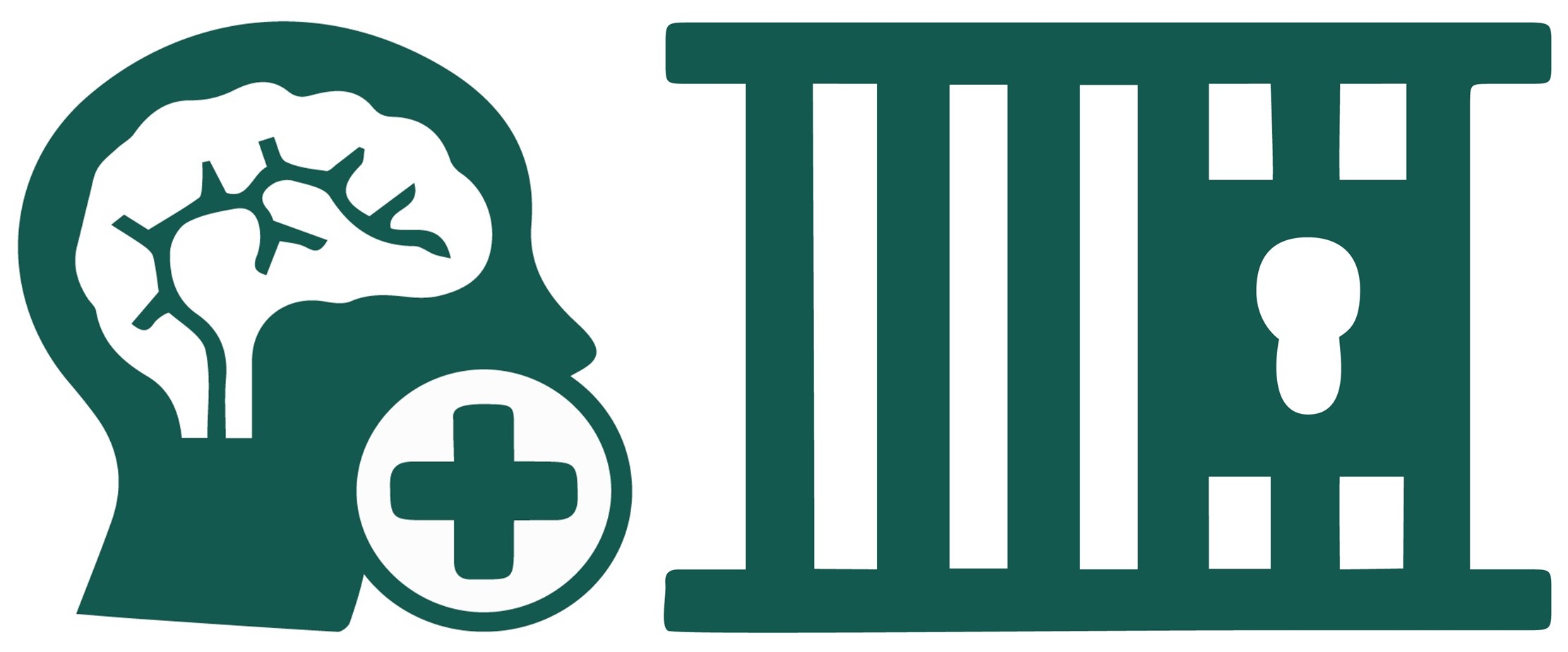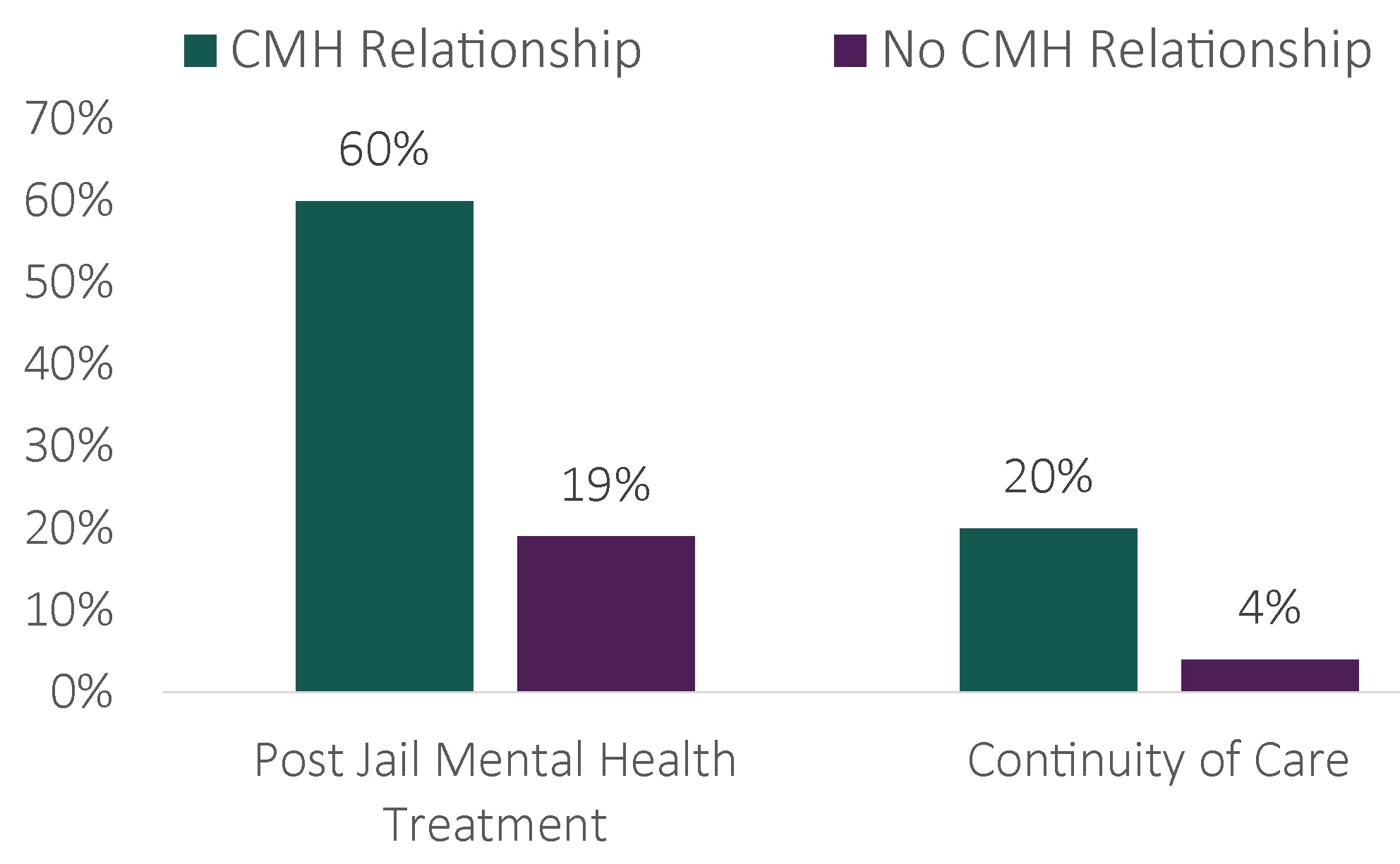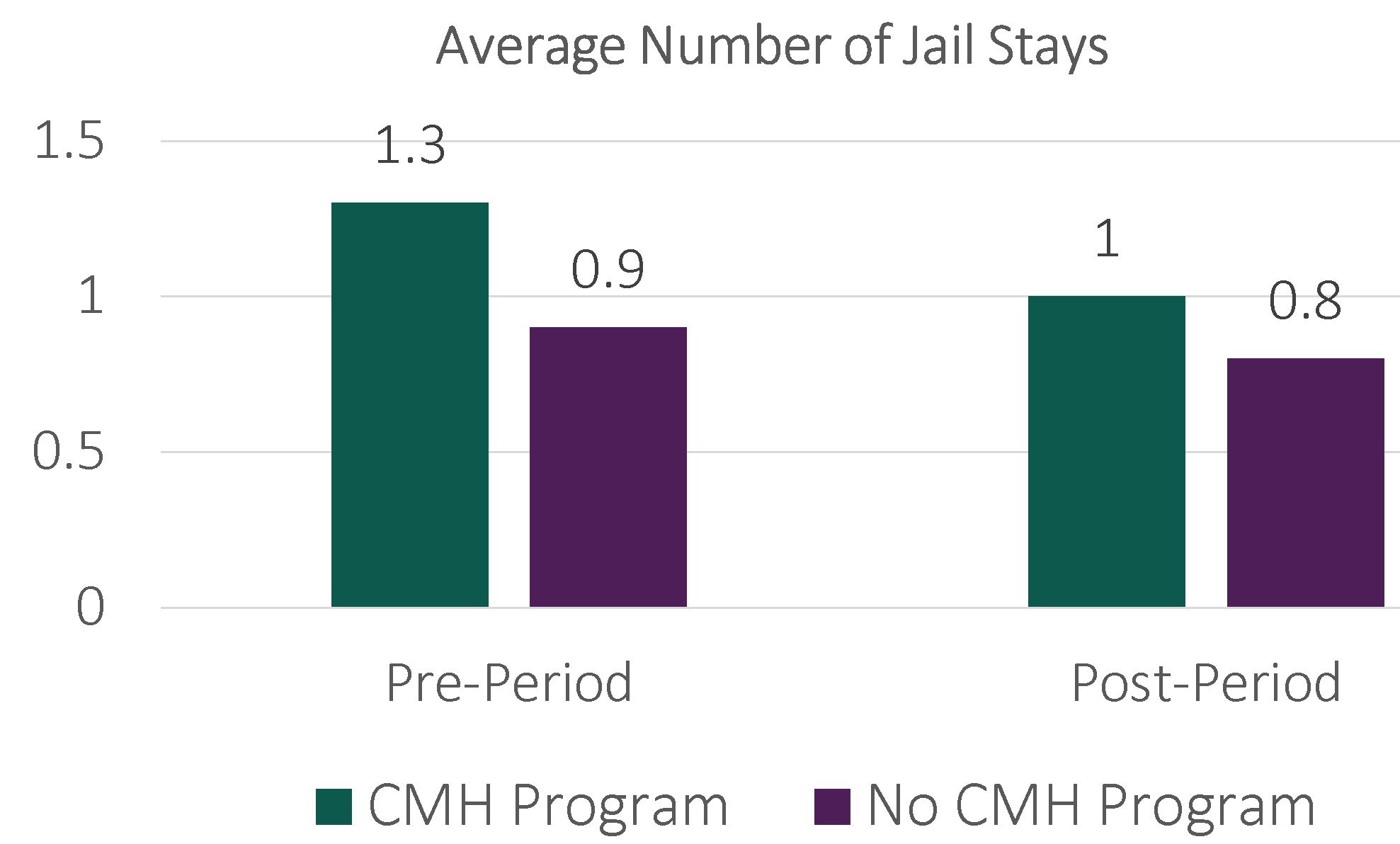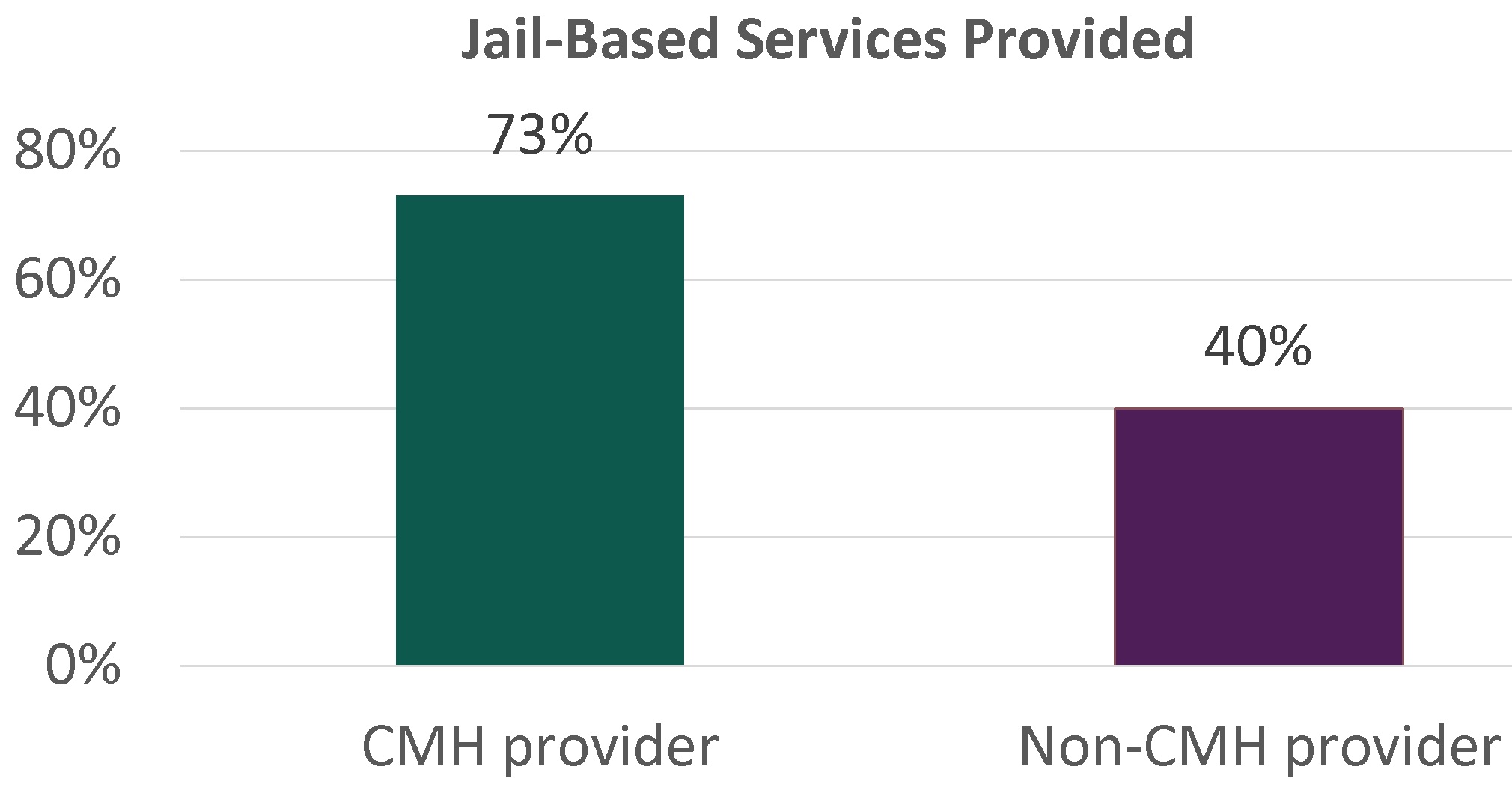The Impact of Community Mental Health on Michigan’s Jails
 Since 2015, the Center for Behavioral Health and Justice (CBHJ) has evaluated programs and practices for individuals with serious mental illness (SMI) in 26 Michigan jails. Using interviews and data from county- and state-level databases, and across multiple evaluation projects, the following results show that CMHs have significant and positive impacts on individuals with SMI who have been in jail.
Since 2015, the Center for Behavioral Health and Justice (CBHJ) has evaluated programs and practices for individuals with serious mental illness (SMI) in 26 Michigan jails. Using interviews and data from county- and state-level databases, and across multiple evaluation projects, the following results show that CMHs have significant and positive impacts on individuals with SMI who have been in jail.
Impact of CMH on Post-Jail Treatment Engagement
 In 2019, 3,797 individuals were screened for SMI at jail booking. Thirty-six percent screened positive for SMI. Of those with SMI, 53% had a CMH relationship in the prior year1. Individuals with a CMH relationship were:
In 2019, 3,797 individuals were screened for SMI at jail booking. Thirty-six percent screened positive for SMI. Of those with SMI, 53% had a CMH relationship in the prior year1. Individuals with a CMH relationship were:
- Significantly more likely to engage with mental health treatment after jail release (60%) compared to those with no CMH relationship (19%).
- More likely to receive care within two weeks of jail release (20%) compared to those with no CMH relationship (4%) - this two-week period holds higher risk for suicide and overdose2.
Impact of CMH on Recidivism
 In 2019, 135 individuals with SMI participated in a CMH jail diversion program. Their outcomes were compared to others with SMI in jail2.
In 2019, 135 individuals with SMI participated in a CMH jail diversion program. Their outcomes were compared to others with SMI in jail2.
Though those who participated in the diversion program were higher risk, there was a significant decrease in the number of jail stays in the year after the CMH program (1.0) compared to the year before (1.3). The number of jail stays did significantly decrease for those with SMI who did not participate in a CMH diversion program.
CMH jail providers are more likely to provide mental health services (73%), than non-CMH providers (40%).4
CMH Effectively Serves Individuals in Jail
- CMH plays a key role in serving individuals with SMI in Michigan’s jails by increasing treatment engagement and reducing recidivism.
- CMH provides in-reach and post-jail follow-up services unlike private mental health providers.
- Current House (H.B. 4925-4929) and Senate (S.B. 597-598) bills would restructure or remove CMH for behavioral healthcare at the community level. This would lead to poor outcomes for this population and create a void on local, collaborative boards seeking to problem-solve and improve deflection and diversion efforts.
- Found in Medicaid Encounter Data, Michigan Department of Health and Human Services;
- Lim, et al, (2012). Risks of Drug-Related Death, Suicide, and Homicide During the Immediate Post-Release Period Among People Released From New York City Jails, 2001–2005, American Journal of Epidemiology, 175(6), 519-526;
- County Jail Data;
- Comartin, et al (2021). Comparing For-Profit and Nonprofit Mental Health Services in County Jails. The Journal of Behavioral Health Services & Research, 48(2), 320-329.
About the Center for Behavioral Health and Justice: The Wayne State University School of Social Work Center for Behavioral Health and envisions communities in which research, data, and best practices are used by multiple stakeholders to enhance the optimal well-being of individuals with mental illness and/or substance use disorders who come into contact with the criminal/legal system. Learn more